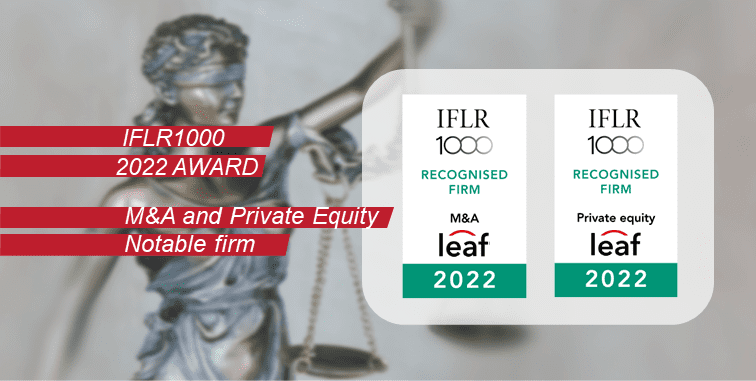In line with the intention of the PRC authorities to promote the new belt and silk road, the pace of Chinese investments outside of China (a.k.a outbound investments) keeps growing. Chinese investors are looking for profitable opportunities, as well as easier regulations to deal with when it comes to investment. This newsletter will focus on the two typical cross-border transaction: outbound direct investment and the round-trip investment.
Outbound Direct Investment
According to PRC laws and regulations, all the outbound investments shall be registered. A typical course of outbound investment registration takes about 4 months. Several authorities are involved along with the process: Ministry of Commerce (MOFCOM), the National Development and Reform Commission (NDRC) and the State Administration of Foreign Exchange (SAFE), which has delegated authority to the Chinese banks, as well as their local branches.

- NDRC Filing or Approval
In parallel with MOFCOM procedures,investors shall also need to apply to NDRC – usually at a municipal level – for filing or approval according to Measures for the Administration of Overseas Investment of Enterprises (effective on March 1st, 2018).
All the sensitive ODI (outbound direct investment) projects are subject to approval, which includes (1) Projects in connection with sensitive countries and regions and (2) Projects in connection with sensitive industries. According to the Industry Category of Sensitive Industries in Outbound Investment (2018), the sensitive industries include:
(i)research, development, manufacturing and repair of weaponry;
(ii)exploitation and utilization of water resources across borders;
(iii)real estate; hotels; studios; entertainment industry; news media; sports clubs; and
(iv)overseas equity investment fund or investment platform without specific projects.
The applicant shall submit online application with relevant documents and after the online application is approved, submit all the original documents to NDRC. The NDRC shall, within 7 business days of accepting the application form, issue a filing notice to the investor. The duration of the procedure will be subject to relevant authorities on a case by case basis. The Approval Letter or Filing Notice issued by NDRC when a project is accepted will be valid for two years.
- MOFCOM Filing or Approval
Investors willing to conduct outbound investments have to first obtain their « Outbound Investment Certificate for Enterprises » (the « Certificate ») from the MOFCOM.
All the outbound investments involving sensitive countries (and regions) and sensitive industries are subject to administrative approvals. The industries to be approved refer to industries exporting products and technologies the export of which is restricted by China, or affecting the interests of a country (region) or more.
Once the online application is filed, the applicant needs to submit the original documents to MOFCOM. If MOFCOM confirms the validity of all the documents submitted, the period for the feedback (filing or approval) will be issued within a week. From there, the enterprise which obtained the Certificate has two years to complete the outbound investment. If it fails to do so, the Certificate becomes invalid.
According to Interim Measures for the Recordation (or Confirmation) and Reporting of Outbound Investment (Effective on January 18, 2018), MOFCOM and other competent authorities (including SAFE) will focus more on the supervision and administration on the outbound investment after ODI registration, including random inspection and conducting priority supervisory inspection on the outbound investment (1) including Chinese investment equivalent to USD 300 million or more; (2) suffering a material operating loss; (3) with the occurrence of a major safety accident or crowd event; (4) in serious violation of regulations; or (5) under other major conditions.
- Registration in the Bank
After the registration at MOFCOM and NDRC, the investor can register at the bank for the outbound investment and opening of special-purpose bank account. The bank will deal with the SAFE registration, acting as the attorney of the SAFE.
The subsequent cross-border transfer or payment needs to go through special account.
Round-trip investment
Round-trip foreign exchange registration has always been a hot topic and difficult issue in the offshore private equity placement and offshore red-chip listing.
For the purpose of simplifying the approval process and for the promotion of the cross-border investment, the SAFE promulgated a text, also known as Circular 37, in July 2014.
As outbound direct investment (ODI) for domestic companies is strictly regulated, it is well recognized that Circular 37 actually shed light for
individuals who desire to make round-trip investment, for example, investing in a domestic company through a HK company in which he/she is a shareholder.
As the outbound investment registration shall be completed with the SAFE, if the previous ODI procedure is not registered, it is not allowed to proceed with the round-trip investment in China. The investor may register the outbound investment at the very beginning or make supplementary report before the round-trip investment (penalty may be charged by SAFE in such case).
Once confirming that registration of the outbound investment, the applicant submits the application and documents to the bank which will be forwarded to SAFE for approval. If approved, the applicant will be able to open a bank account “for special purpose” in the bank. All the transfer under the round-trip investment will be done in such account.
✧
✧ ✧
It is well acknowledged that the control by the Chinese authorities over outbound investment is getting stricter.
According to the data released by the Ministry of Commerce last January, the total amount of non-financial direct investment was 120.08 billion U.S. dollars in 2017, which declined by 29.4% year-on-year. According to the authority, this evolution is due to “irrational outbound investments” which have been effectively contained by the PRC authorities. On February, NDRC published the “Foreign Investment Sensitive Industry Directory (2018)”, in which real estate, hotels, studios, entertainment industry, sports clubs are newly added in the list of restricted activities.
These measures generally lead to an increasing amount of refusal by the Chinese authorities to approve outbound investment projects, that may generate risks of breach of contracts by the Chinese investors.
For more information or assessment of your current compliance and preliminary risk analysis, please feel free to contact:
Jean-Philippe Engel jp.engel@leaf-legal.com
Bruno Grangier b.grangier@leaf-legal.com












